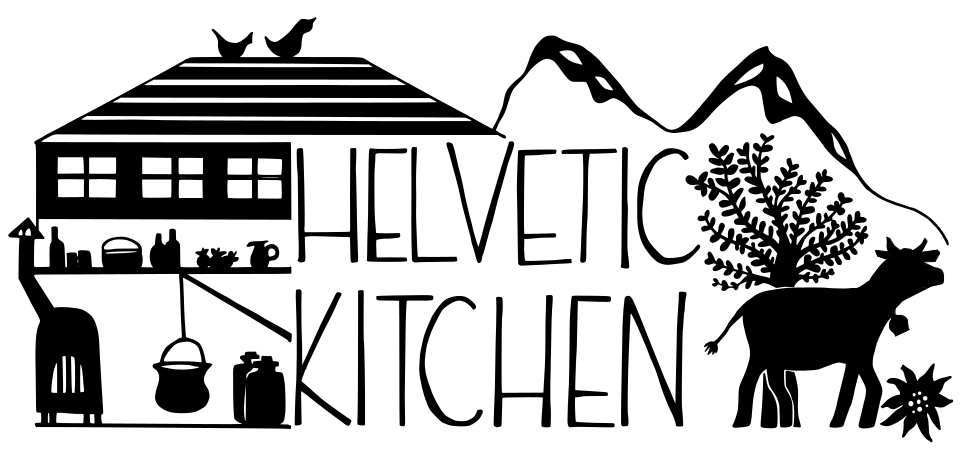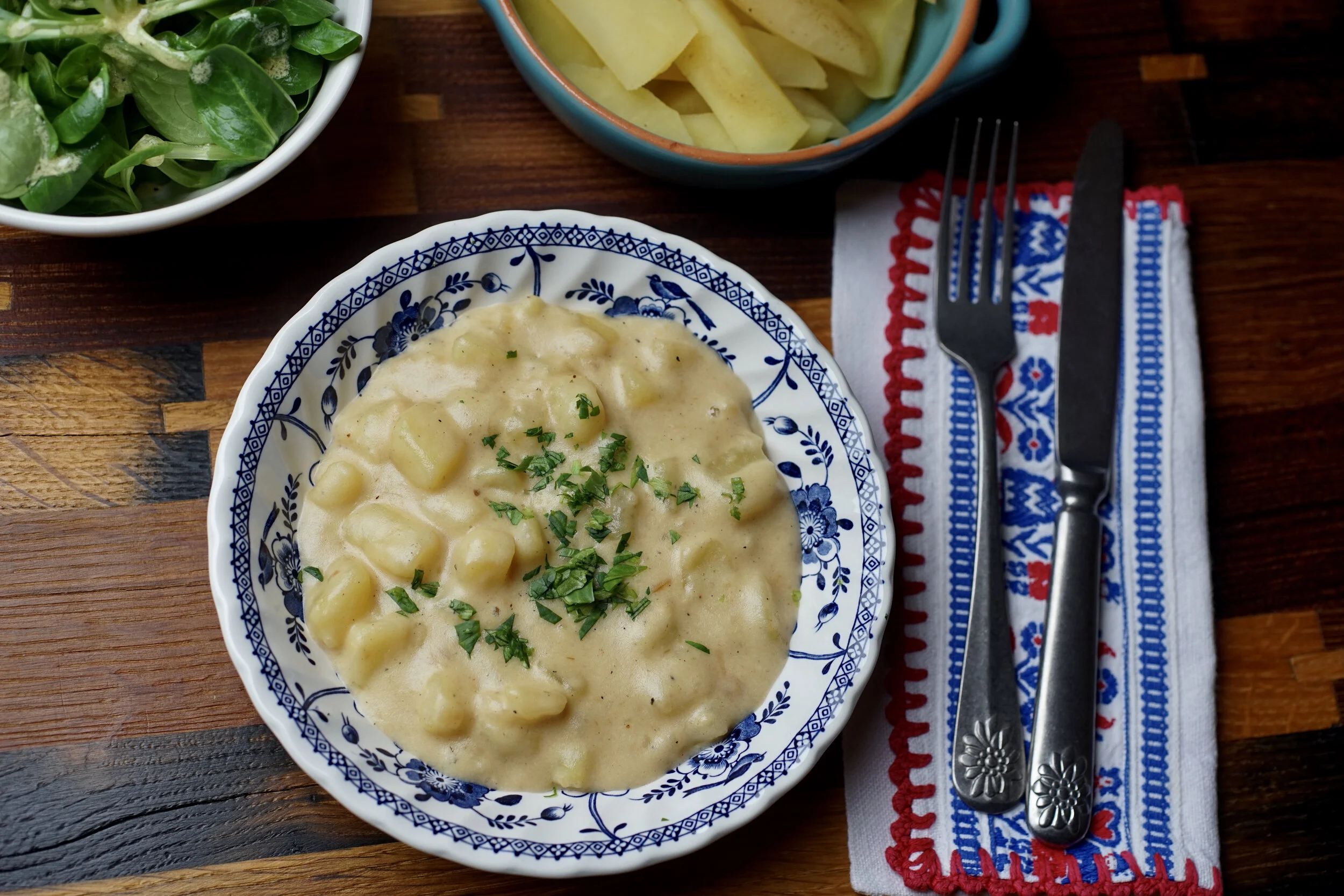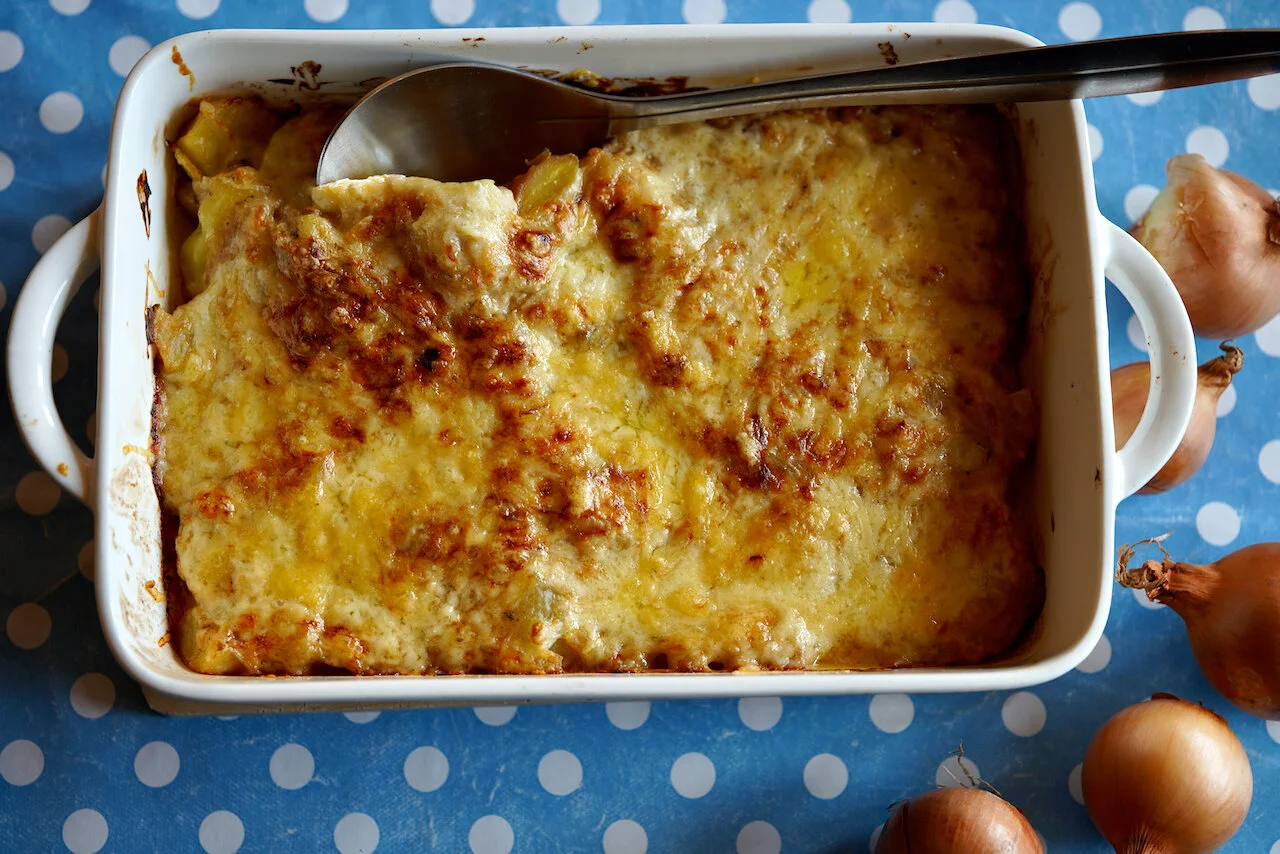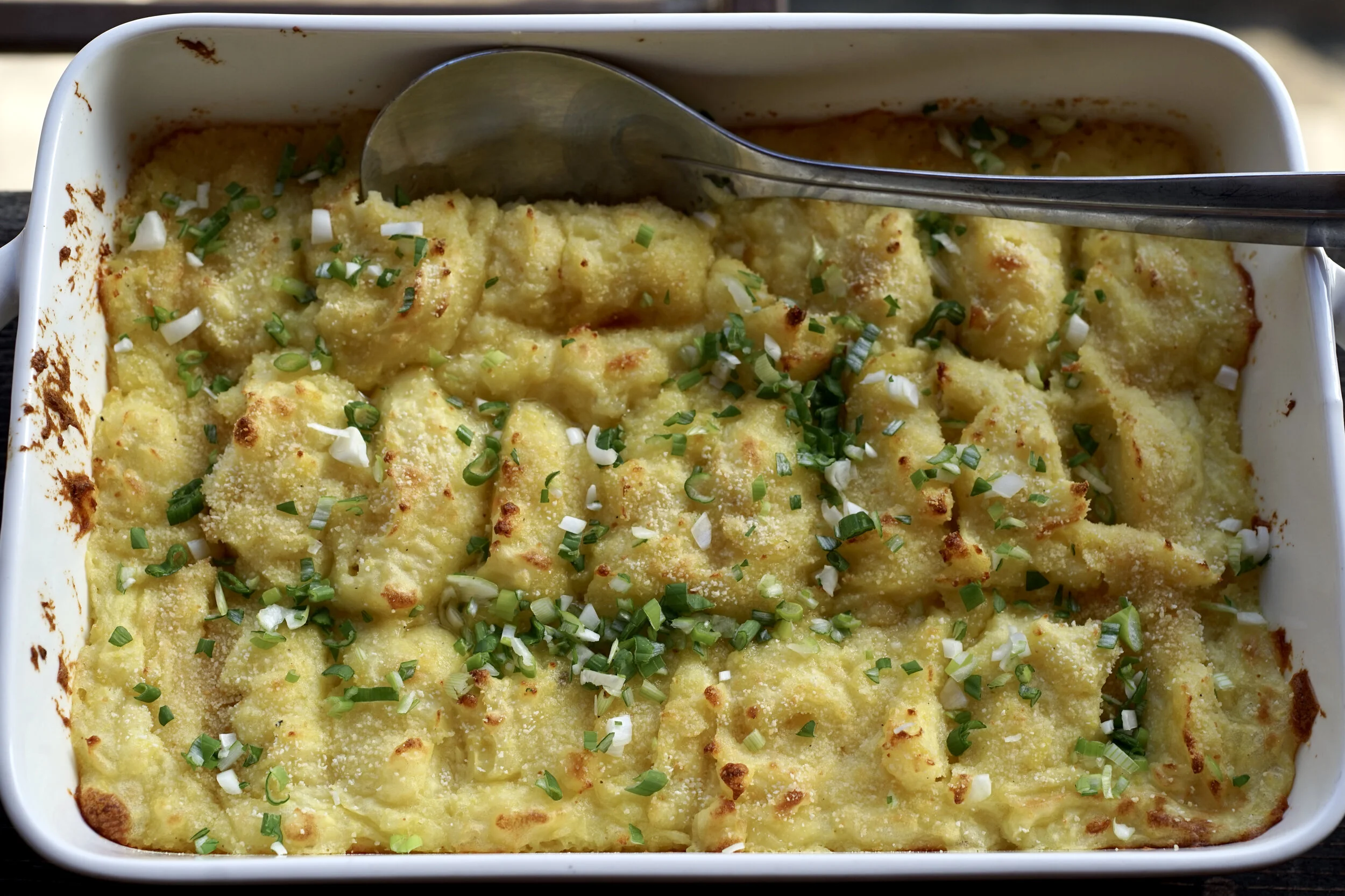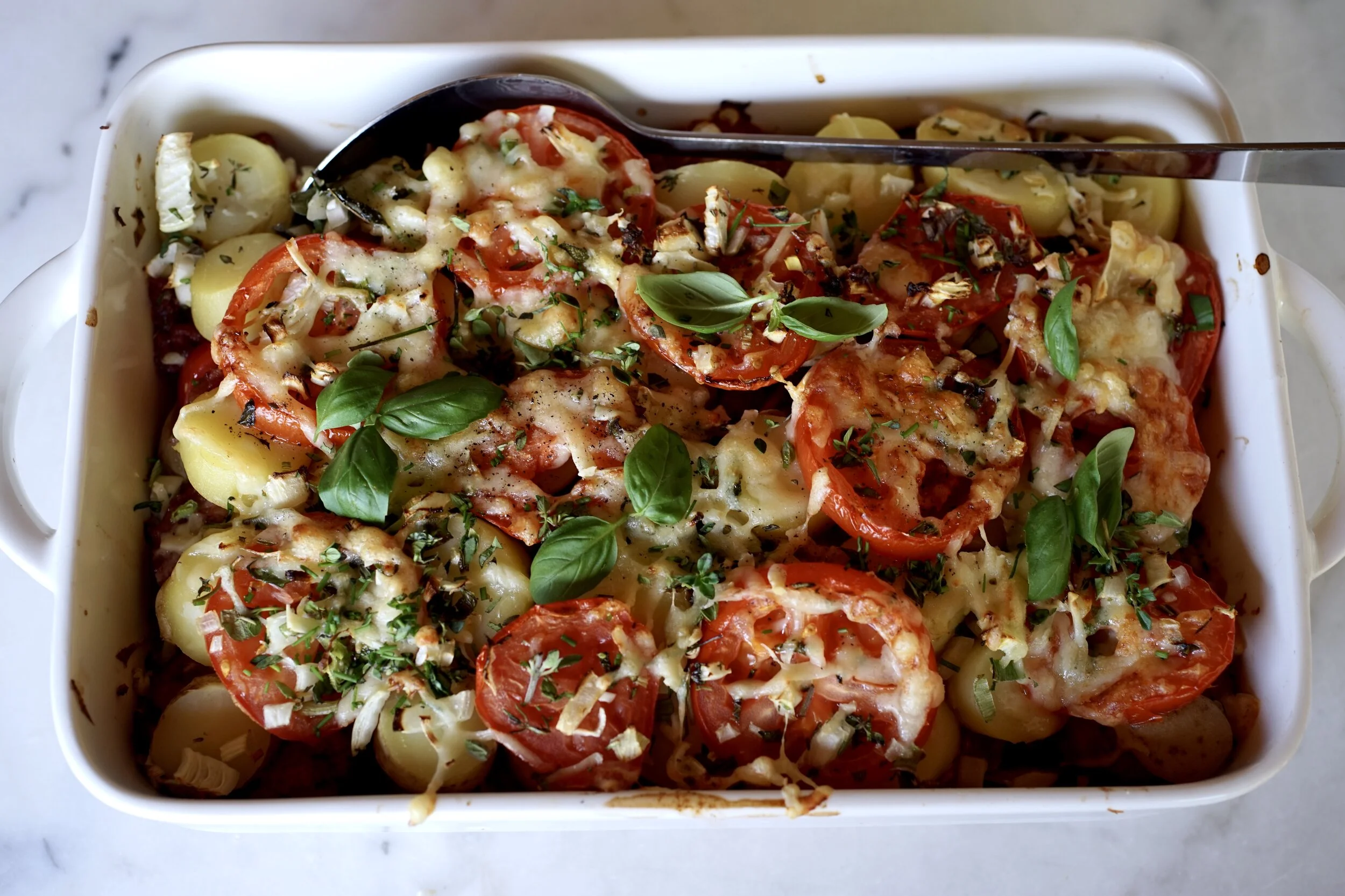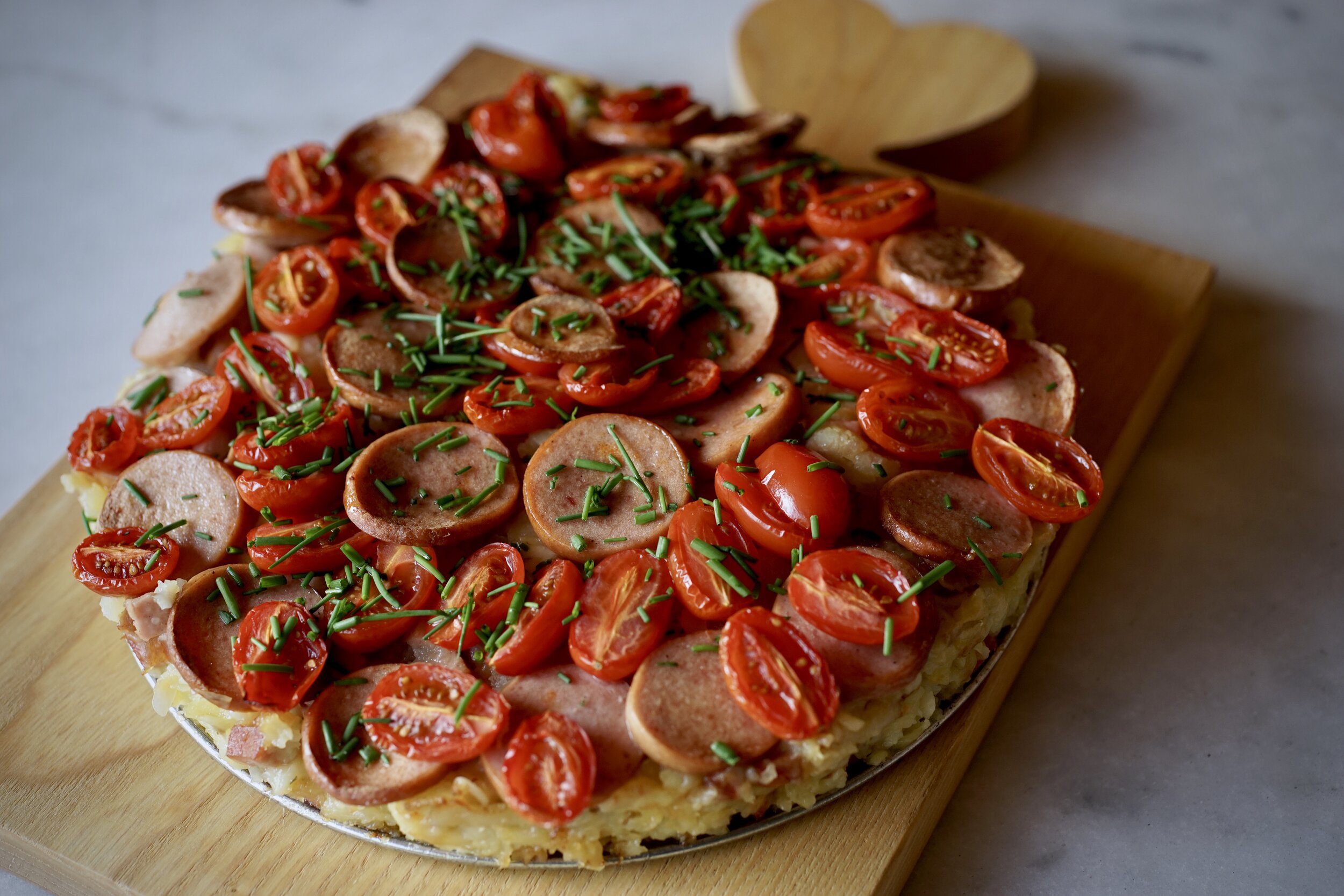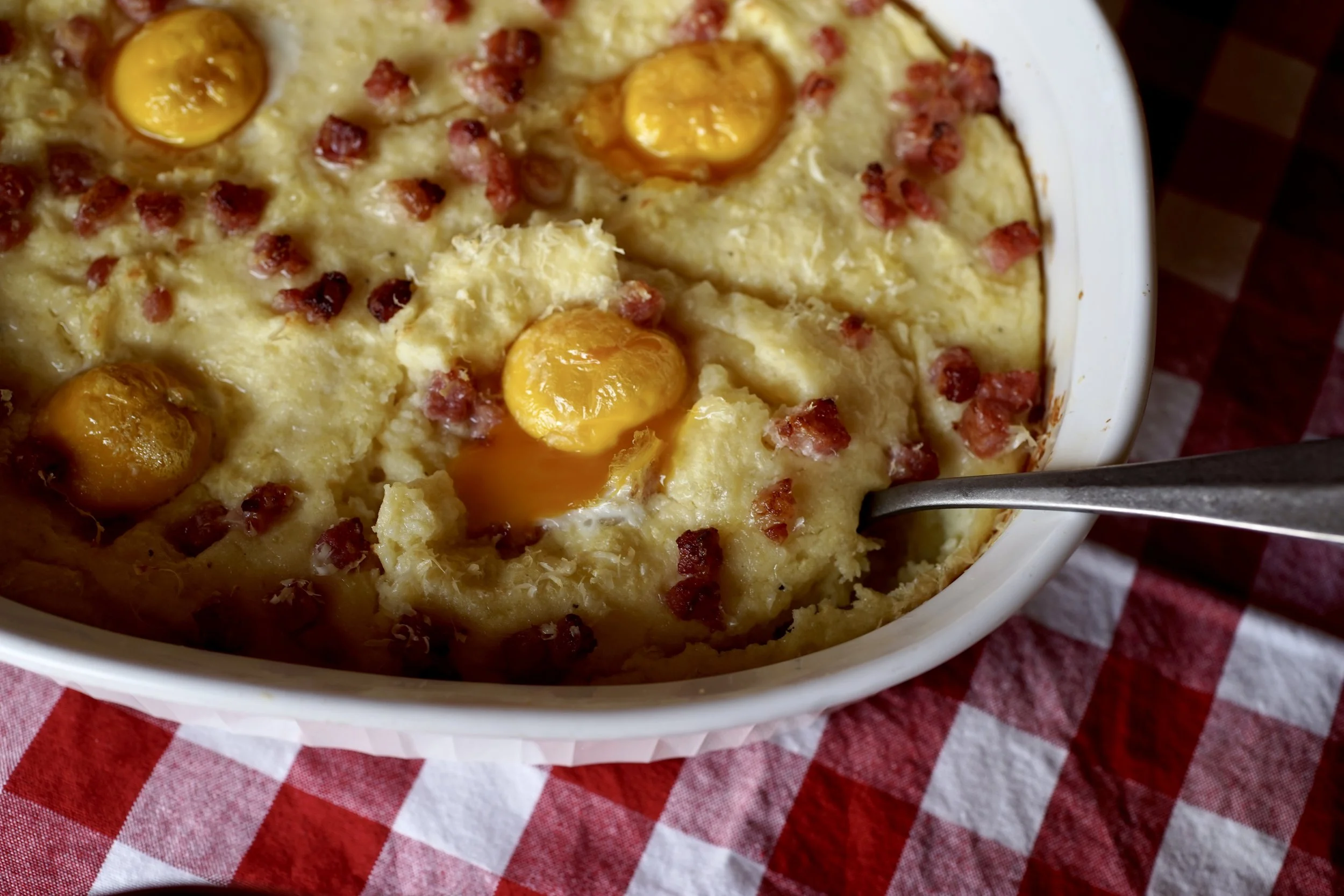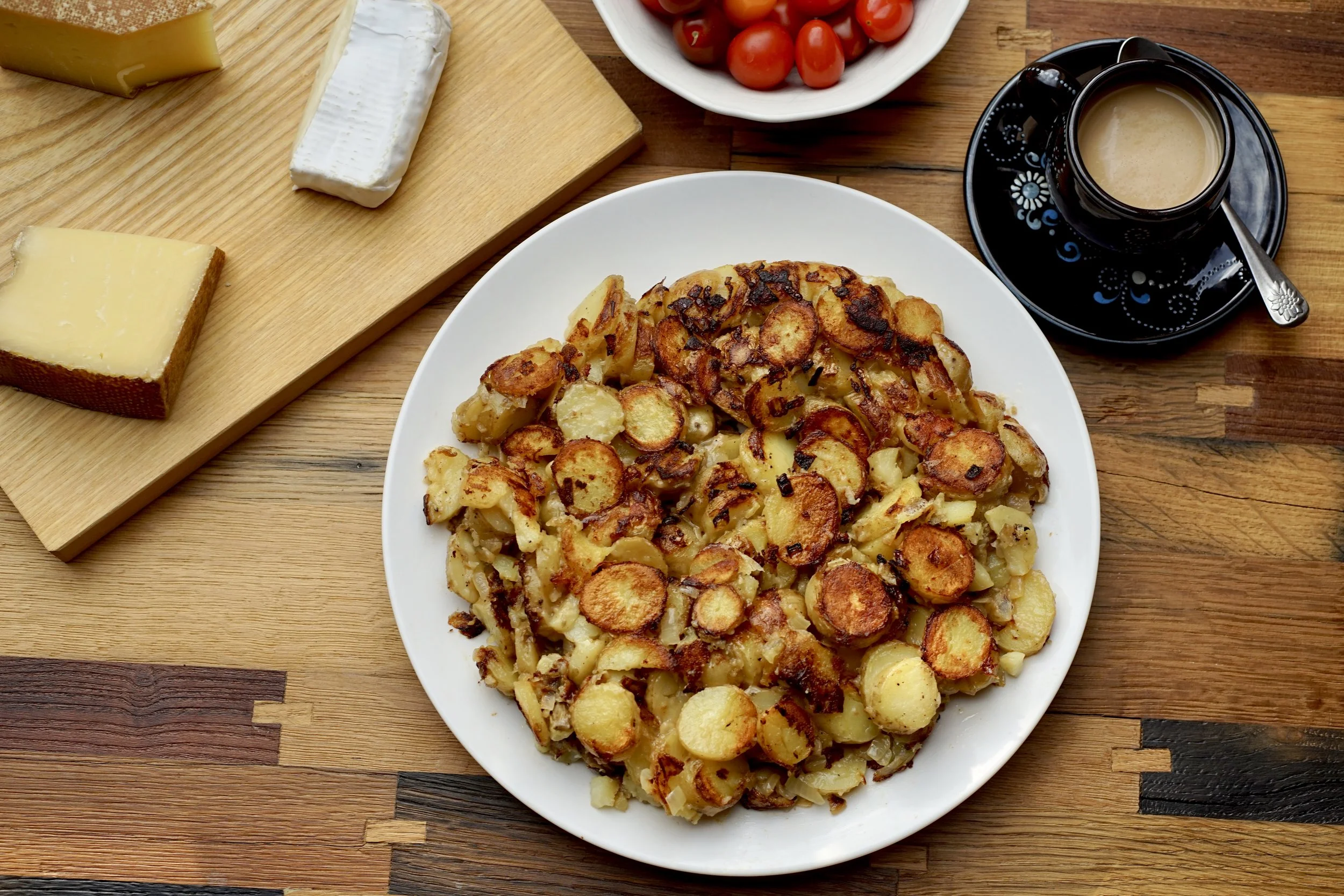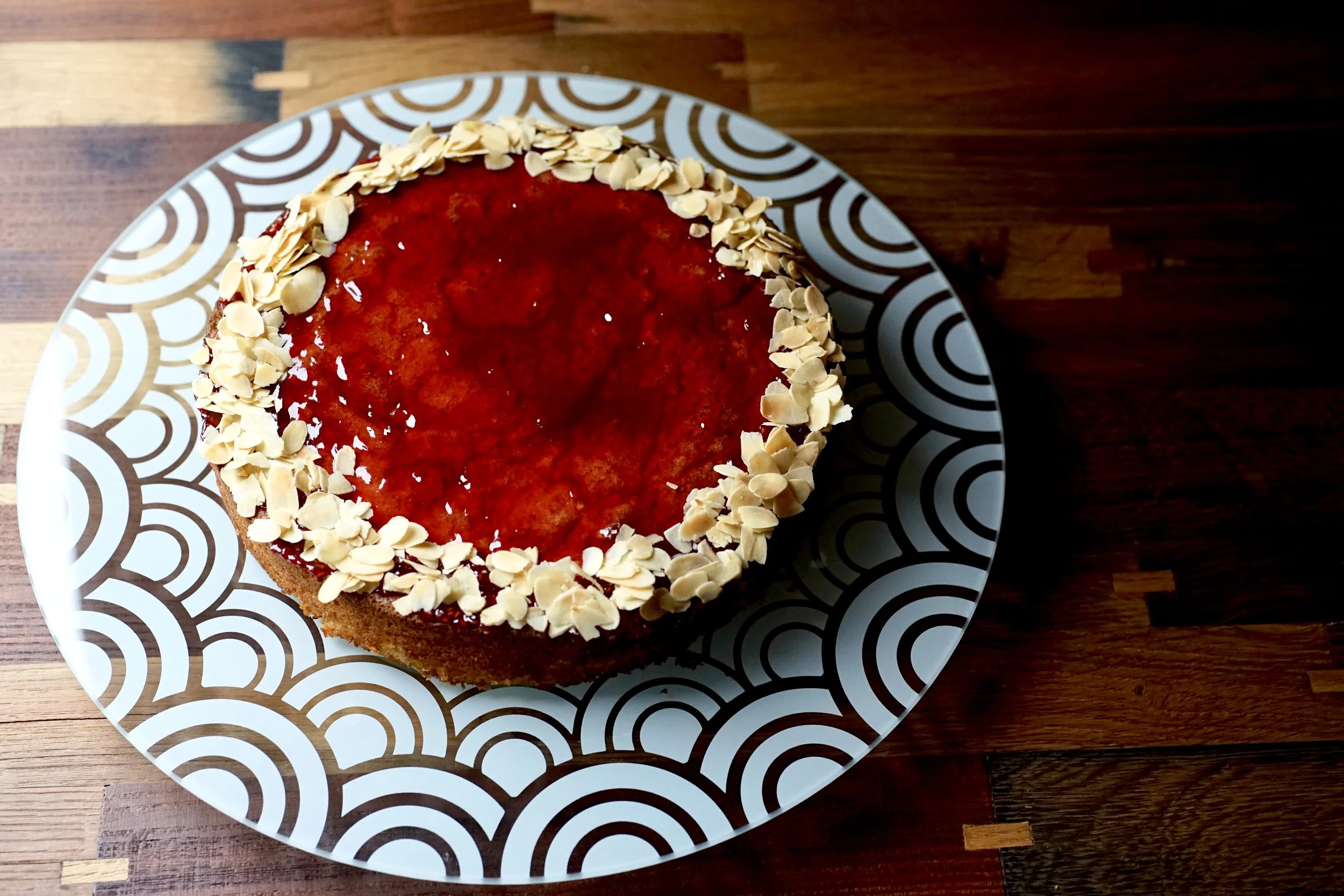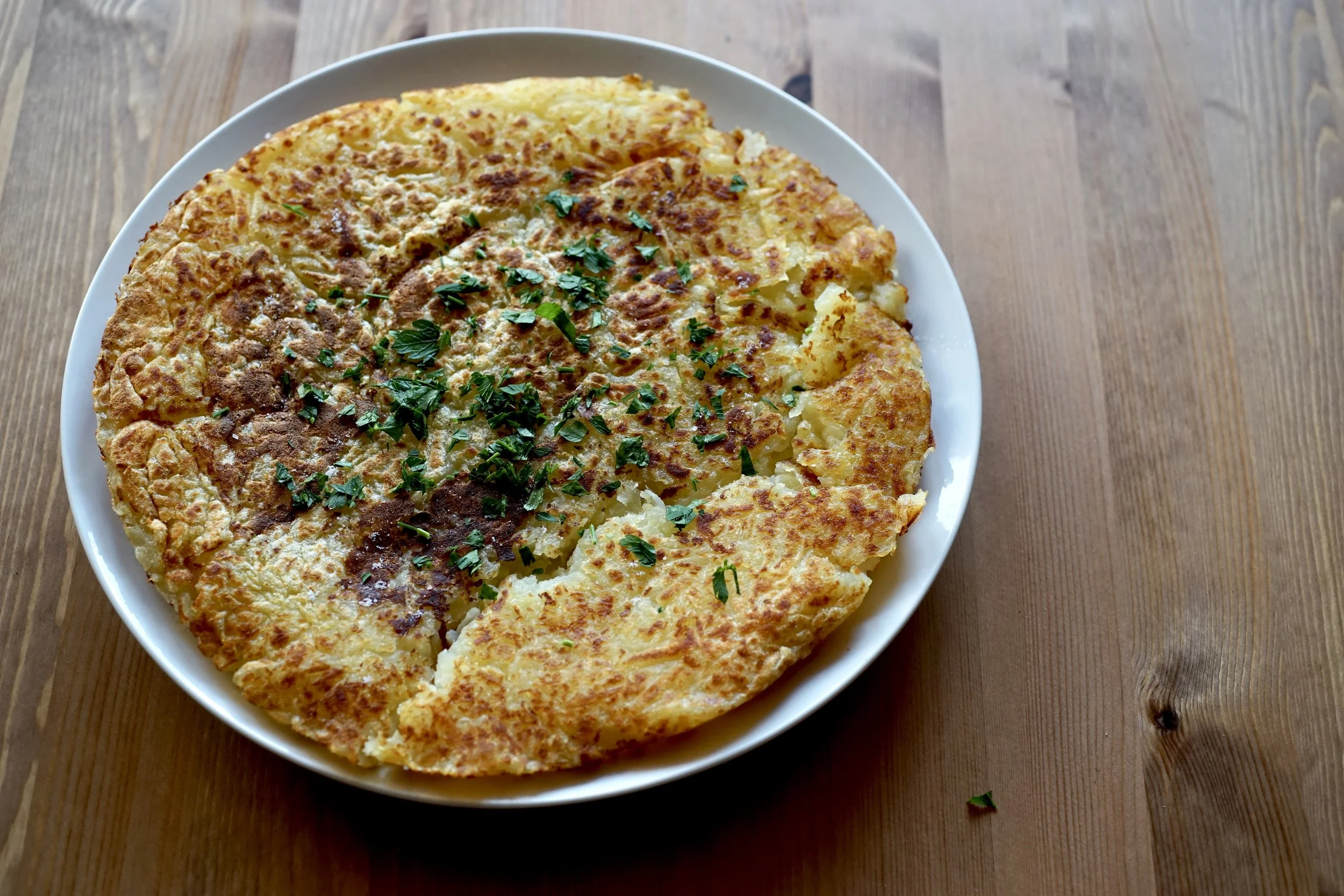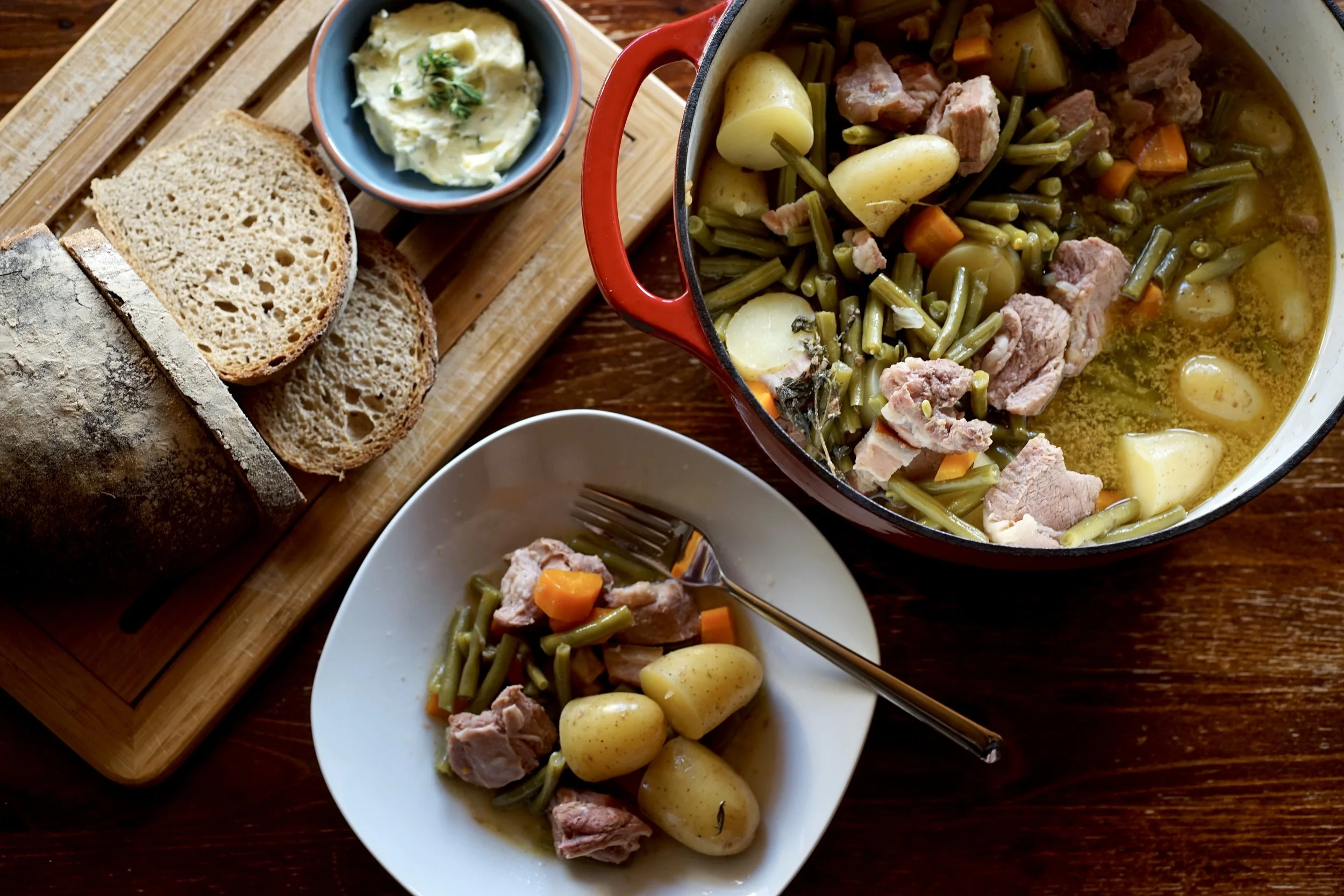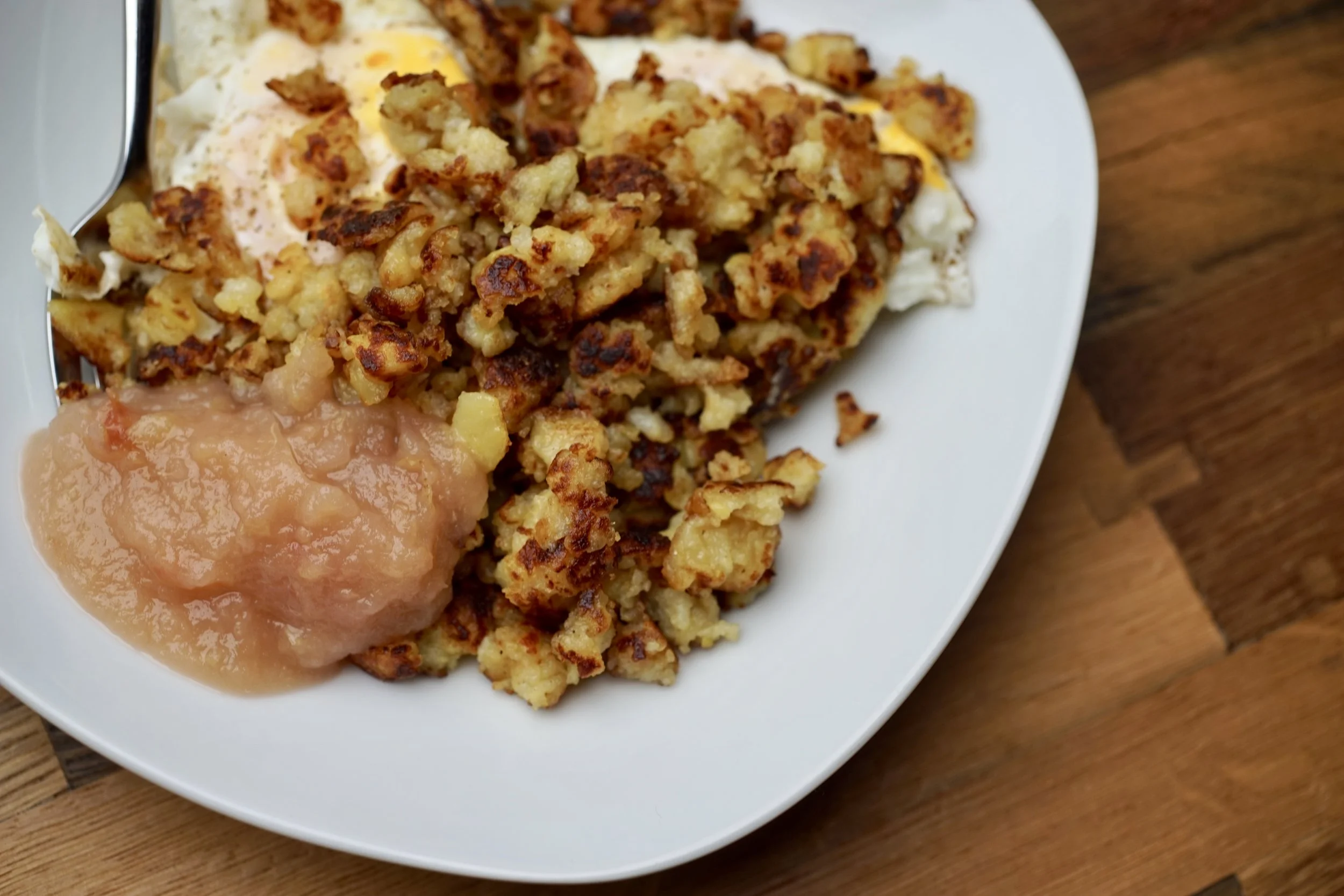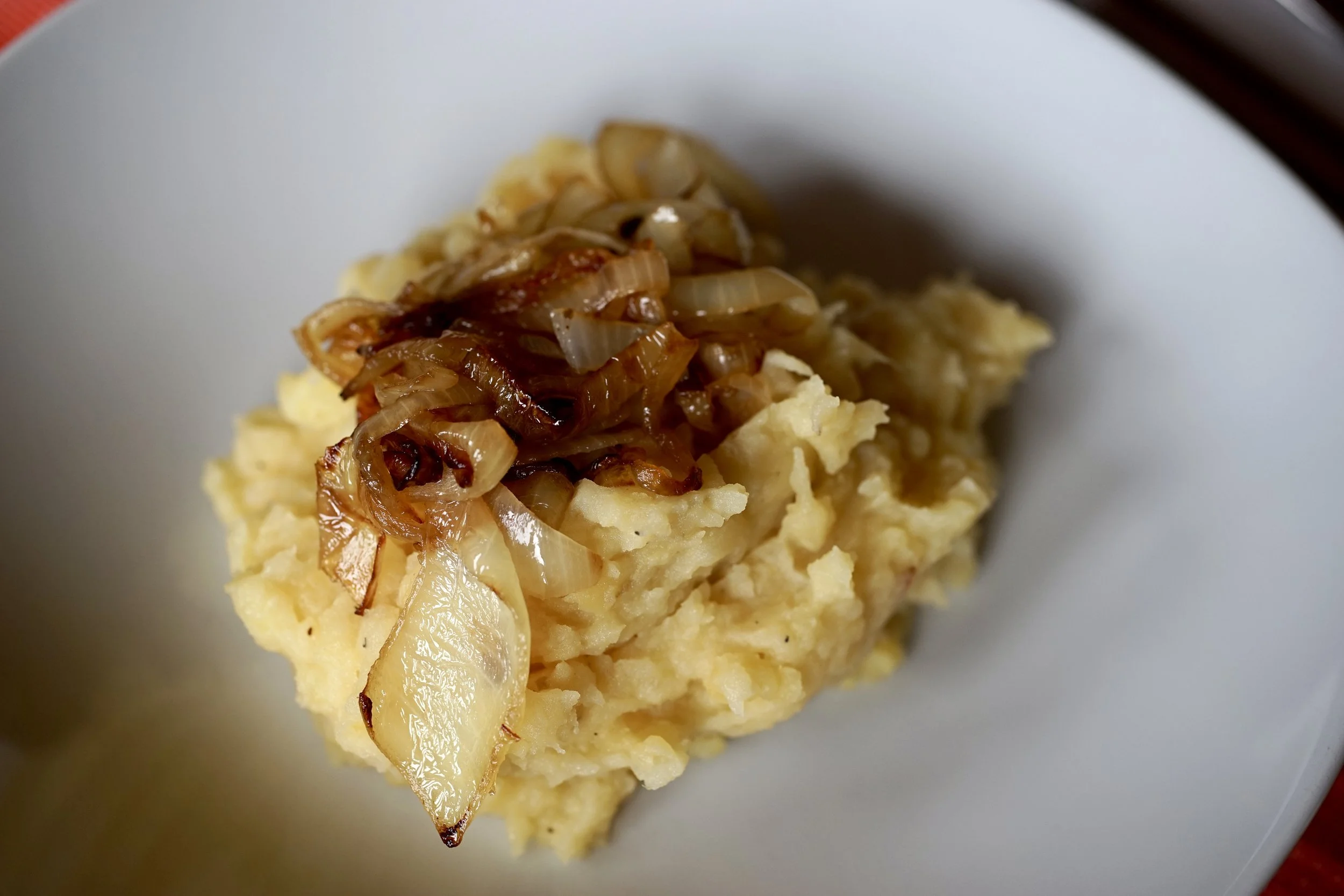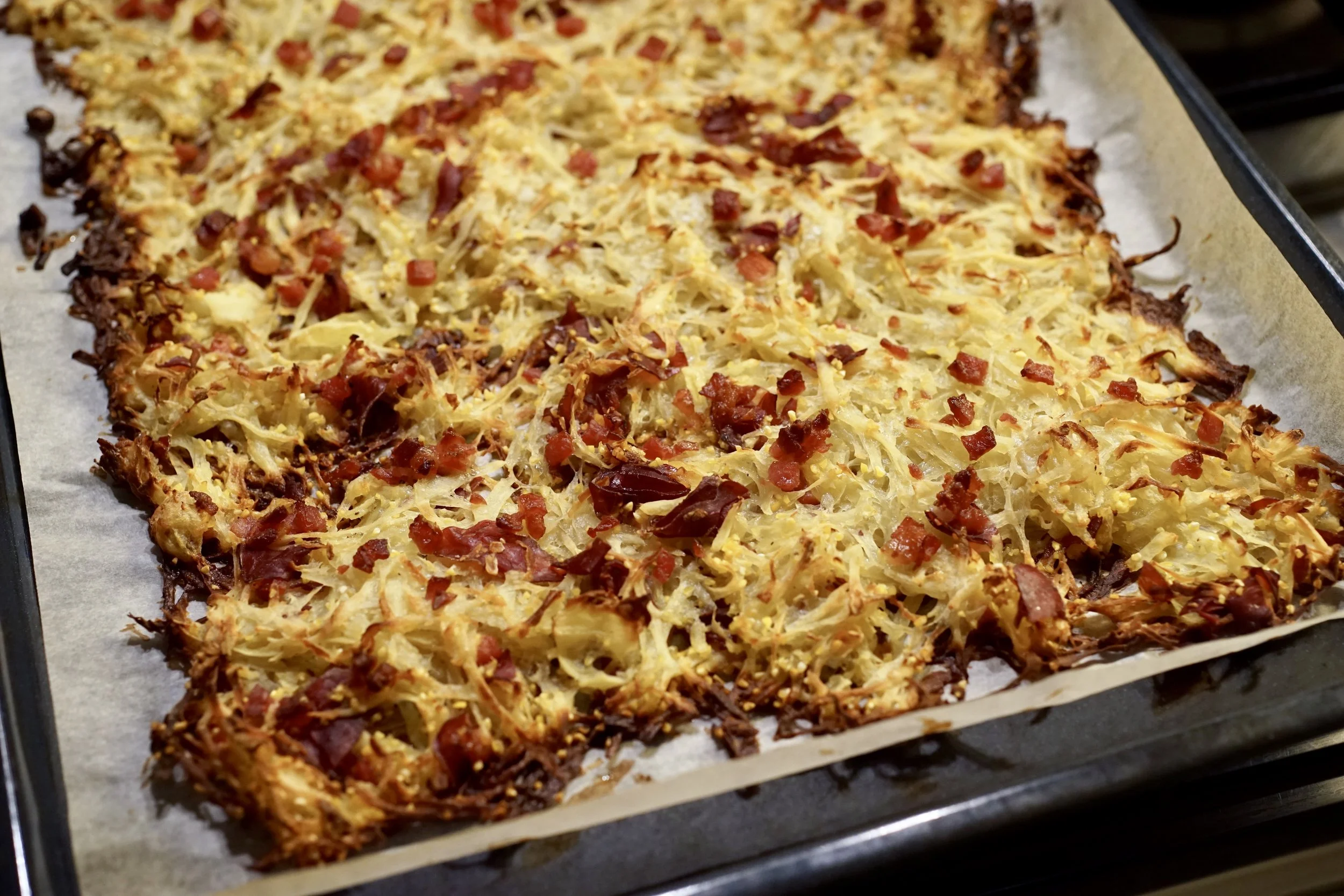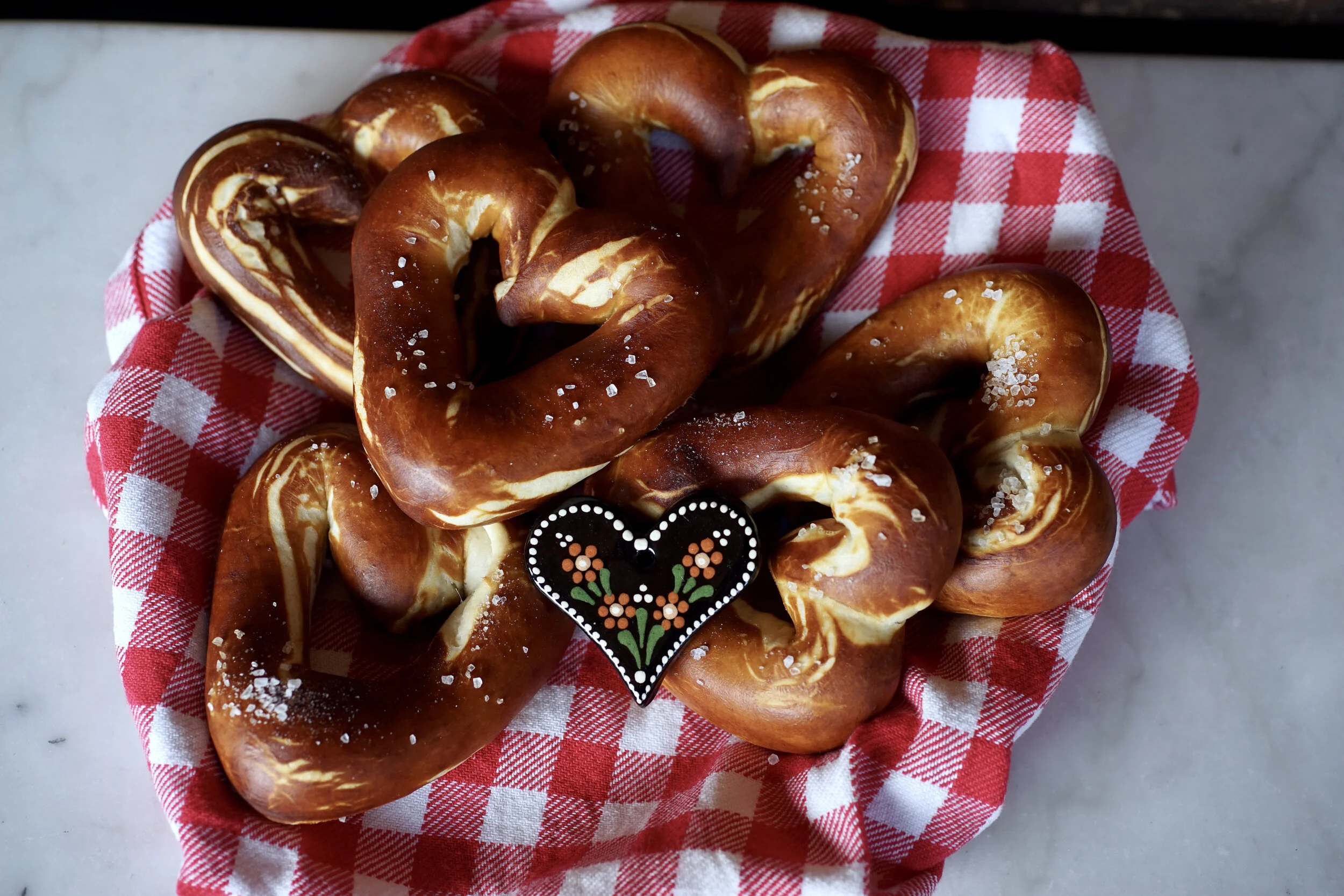Härdöpfubitzli
I recently acquired a new cookbook called Chuchischätz, kitchen treasures. It was created by the elderly residents of an assisted living facility in Sumiswald, in the heart of the Emmental.
It’s bursting with excellent recipes that rely on the wisdom and know-how of grandmothers and great grandmothers (and a few grandfathers too), many who had watched their mothers in the kitchen feeding large families, often on farms, and then became responsible for the feeding of their own broods.
They are tried and tested, and Grosi approved (plus there’s an entire chapter on potatoes).
The book honours mostly traditional dishes with a few surprises thrown in, including one woman who shared Chili con Carne (one of her family’s favourites after she had it while visiting her sister in Canada), and another who shared her mother’s Königsberger Klopse (she had come from East Prussia originally and had a harrowing back story about fleeing in 1945, being forced into Russia work camps, and having her whole family disappear in the meantime).
It’s the people and their stories that make this book really special. Along with their personal histories they give tips, as well as secrets to how the dishes came about, like one called Übberaschig im Spinet (Spinach Surprise), that originated from a glut of duck eggs. Instead of composting the extra eggs, the young cook stirred them into her cooked spinach with great success.
The Härdöpfubitzli recipe comes from Frau Anni Sommer, who learned it from her mother. Potatoes were ever-present on their farm, and this dish was an easy meal year round.
I’ve mostly followed Frau Sommer’s recipe, doubling it to feed four and leaving out the cream and parsley at the end.
knob of butter
1 onion, minced
600 g potatoes, peeled and chopped
3 tbsp flour
800 ml milk (or half milk, half water)
nutmeg, salt and pepper
chives and grated cheese to garnish
In a large frying pan melt the butter over medium heat. When it is sputtering, add the onion and cook until translucent.
Add the potatoes and cook for a minute, then sprinkle the flour over top and stir.
Stir in the milk and seasonings, then slowly bring to a boil.
You want to let this bubble and cook on the stove, over low heat, for about half an hour, or until the potatoes are cooked through and the sauce is creamy. You don’t have to stir constantly, but keep the potatoes moving so they don’t burn and stick to the bottom (I like to keep a jug of milk or water next to the stove, and if the sauce starts looking a little too thick, I add a bit of extra liquid).
Once the potatoes are cooked through and the sauce is creamy, spoon into bowls and garnish with chives and cheese.
I used a floury potato, but most varieties can likely be used—the consistency of the dish may just differ slightly. A floury, mehligkochend, potato, like those you use for mashed potatoes has a tendency to fall apart easier and may thicken the dish more. Festkochened, waxy, potatoes will hold their shape better. The Swiss potato website kartoffel.ch lists all their waxy and floury potatoes and highlights their best uses.
We served it with salad and Öpfuschnitze, steamed apple slices (though applesauce would also work).
If you are interested in ordering the cookbook, Chuchischätz, check out their website.

